SESJA POPULARNONAUKOWA
Oceans, Corals, and Reefs:
Past, Present and Future?
Sobota, 16 września 2023, 11:00
Program:
11:00 Introduction: a glimpse from the geological past.
Jarosław Stolarski (Institute of Paleobiology, Polish Acedemy of Sciences)
11:15 The contemporary state of the global ocean.
Jan Marcin Węsławski (Institute of Oceanology, Polish Academy of Sciences)
11:30 Exploration of the deep-ocean coral structures.
Anne M. Gothmann (St. Olaf College, USA)
12:00 – 12:10 Break
12:10 – ca. 13:00 Is the Great Barrier Reef on Death Row?
John (Charlie) Veron (Coralsoftheworld.org, Australia)
13:00 – ca. 13:30 Questions & answers
![]()
.
.
.
Kraków
ul. Krupnicza 33A
Aula A centrum dydaktycznego
Wydziału Prawa i Administracji UJ
(obok Auditorium Maximum)
.

Oceans, Corals, and Reefs: Past, Present and Future?
Until recently, coral reefs were home to almost a quarter of all living marine species. But one in four reefs is already dead, and those remaining are existentially threatened. Ocean acidification, global warming and resulting coral bleaching, as well as physical damage to reefs from human activity, have all reached news headlines in recent years and raised widespread public awareness about the fact that coral reefs are under threat. Clearly, the countries that are directly impacted by the decline of coral reefs are those with significant coral reef ecosystems, such as many small island nations and coastal countries in regions like the Caribbean, Pacific, and Southeast Asia. For example, coral reefs act as natural barriers that help protect coastlines from storms, waves, and erosion. Their degradation will leave coastal communities more vulnerable to the impacts of climate change, including rising sea levels and increased frequency of extreme weather events which will heavily impact tourism-dependent economies.
However, the health of global marine ecosystems, including coral reefs, can indirectly impact economies and global health worldwide. First, coral reef decline will be a contributing factor to increased rates of human migration worldwide. Additionally, the decline of coral reefs globally would affect the productivity of fisheries, thus impacting seafood industries and associated livelihoods in many countries. Coral reefs and the plants and animals that inhabit them are also often referred to as the “medicine cabinets of the 21st century”, given that they are important sources of new medicines being developed to treat illnesses including cancer, arthritis, viruses, Alzheimer’s disease, and heart disease.
The global significance of coral reefs and their interconnectedness with other ecosystems and economies make their preservation and protection a matter of concern for people around the world, including those in Poland. For that reason, we organized a seminar event associated with the conference of the International Fossil Coral and Reef Society (IFCRS), which will be held this September in Poland. During the seminar, renowned experts will share their perspectives on the global ocean (Professor Jan Marcin Węsławski), the evolutionary history of ancient reefs and reef-forming organisms (Professor Jarosław Stolarski), the exploration of deep-sea coral structures (Professor Anne M. Gothmann). Finally, Professor John (Charlie) Veron will share his lifetime experience with thriving and dying coral reefs.
The seminar (in English) aims to enlighten, motivate and stimulate debate and awareness about the importance of coral reefs and is tailored for the general public.
.
.
.
.
.
.
.
.
.
.
.
Speakers:
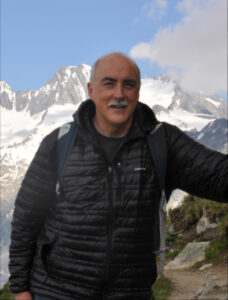 Jarosław Stolarski – paleobiologist, professor of Earth Sciences, director of Institute of Paleobiology PAS in Warsaw and visiting professor at École Polytechnique Fédérale de Lausanne (EPFL), Switzerland. Professor Stolarski’s research interests include the structural and biogeochemical aspects of biomineralization in different groups of organisms and problems related to the origin and evolution of deep-water and reef-building corals. He has made discoveries of fossil and modern corals with skeletons of unique mineralogical composition, introduced a new model of coral skeleton growth, and demonstrated that coral photosymbiosis was linked with the expansion of shallow-water corals about 240 million years ago. His research projects are multidisciplinary, combining cutting-edge structural, biogeochemical and molecular research tools, with results published in top-scientific journals including Science, Science Advances, Proceedings of the National Academy of Sciences, and Geology.
Jarosław Stolarski – paleobiologist, professor of Earth Sciences, director of Institute of Paleobiology PAS in Warsaw and visiting professor at École Polytechnique Fédérale de Lausanne (EPFL), Switzerland. Professor Stolarski’s research interests include the structural and biogeochemical aspects of biomineralization in different groups of organisms and problems related to the origin and evolution of deep-water and reef-building corals. He has made discoveries of fossil and modern corals with skeletons of unique mineralogical composition, introduced a new model of coral skeleton growth, and demonstrated that coral photosymbiosis was linked with the expansion of shallow-water corals about 240 million years ago. His research projects are multidisciplinary, combining cutting-edge structural, biogeochemical and molecular research tools, with results published in top-scientific journals including Science, Science Advances, Proceedings of the National Academy of Sciences, and Geology.
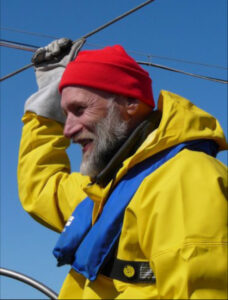 Jan Marcin Węsławski – marine ecologist, graduated at University of Gdansk 1979, specialist in coastal ecosystems and biodiversity relations to climate change. Professor Węsławski has spent over 55 months on polar and marine expeditions, from Arctic Russia, to Svalbard, Greenland and the Canadian Arctic. Recently involved in human-nature relations, he is the project coordinator for the major european marine biodiversity project MARBEFES (26 partners, 16 mln euro). Since 2018, he has been the director of the Institute of Oceanology PAS in Sopot, a member of the committee for Polar and Marine research at Polish Academy of Sciences. Professor Węsławski is an author of over 150 research papers cited over 5500 times.
Jan Marcin Węsławski – marine ecologist, graduated at University of Gdansk 1979, specialist in coastal ecosystems and biodiversity relations to climate change. Professor Węsławski has spent over 55 months on polar and marine expeditions, from Arctic Russia, to Svalbard, Greenland and the Canadian Arctic. Recently involved in human-nature relations, he is the project coordinator for the major european marine biodiversity project MARBEFES (26 partners, 16 mln euro). Since 2018, he has been the director of the Institute of Oceanology PAS in Sopot, a member of the committee for Polar and Marine research at Polish Academy of Sciences. Professor Węsławski is an author of over 150 research papers cited over 5500 times.
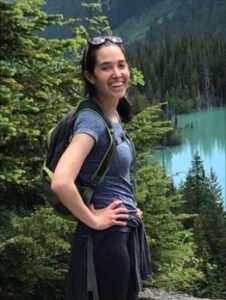 Anne M. Gothmann – professor at the Environmental Studies and Physics departments at St. Olaf College, Northfield, MN, USA. Professor Gothmann is interested in understanding how much (and at what rates) Earth’s climate and environment have changed through time, and how these global environmental changes can impact the marine biosphere. She is an early career scientist who focuses on understanding the physical structure and chemical composition of modern and fossil coral skeletons in order to better use them as archives of past environmental change. Professor Gothmann is one of the only scientists who studies deep sea corals by performing live experiments with them in the lab. She also showed that fossil corals – even those that are millions of years old (if properly preserved) – can be used to reconstruct past changes in ocean chemistry.
Anne M. Gothmann – professor at the Environmental Studies and Physics departments at St. Olaf College, Northfield, MN, USA. Professor Gothmann is interested in understanding how much (and at what rates) Earth’s climate and environment have changed through time, and how these global environmental changes can impact the marine biosphere. She is an early career scientist who focuses on understanding the physical structure and chemical composition of modern and fossil coral skeletons in order to better use them as archives of past environmental change. Professor Gothmann is one of the only scientists who studies deep sea corals by performing live experiments with them in the lab. She also showed that fossil corals – even those that are millions of years old (if properly preserved) – can be used to reconstruct past changes in ocean chemistry.
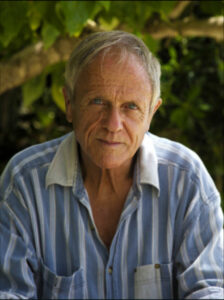 John (Charlie) Veron – biologist, taxonomist, and specialist in the study of corals and reefs. He was the first scientist employed by the Australian Institute of Marine Science. He named about 20% of reef corals and built a taxonomic framework for corals that is used throughout the world. Professor Veron founded the Orpheus Island Marine Station, discovered and delineated the Coral Triangle, and introduced the concept of reticulate evolution to the marine world. Author of publications dealing with coral palaeontology, taxonomy, biogeography and physiology, including the three-volume Corals of the World “bible” and the Great Barrier Reef tome A Reef in Time. Professor Veron has many professional awards, including the Darwin Medal (International Society for Reef Studies) and the Medal of the Order of Australia. He is featured in the 2017 documentary Chasing Coral (Netflix) and a sculpture of him named “The Godfather of Coral” created by Jason deCaires Taylor is a part of the exhibition of the Museum of Underwater Art.
John (Charlie) Veron – biologist, taxonomist, and specialist in the study of corals and reefs. He was the first scientist employed by the Australian Institute of Marine Science. He named about 20% of reef corals and built a taxonomic framework for corals that is used throughout the world. Professor Veron founded the Orpheus Island Marine Station, discovered and delineated the Coral Triangle, and introduced the concept of reticulate evolution to the marine world. Author of publications dealing with coral palaeontology, taxonomy, biogeography and physiology, including the three-volume Corals of the World “bible” and the Great Barrier Reef tome A Reef in Time. Professor Veron has many professional awards, including the Darwin Medal (International Society for Reef Studies) and the Medal of the Order of Australia. He is featured in the 2017 documentary Chasing Coral (Netflix) and a sculpture of him named “The Godfather of Coral” created by Jason deCaires Taylor is a part of the exhibition of the Museum of Underwater Art.
.
.
.
.
.
.
.
.
.
.
.
.
HONORARY PATRONAGE:

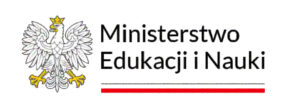

.
POP-SCIENCE SESSION SPONSOR:

